|
Books Should Be Free Loyal Books Free Public Domain Audiobooks & eBook Downloads |
|
|
Books Should Be Free Loyal Books Free Public Domain Audiobooks & eBook Downloads |
|
History Books |
|---|
|
Book type:
Sort by:
View by:
|
By: Pierre Gustave Toutant Beauregard (1818-1893) | |
|---|---|
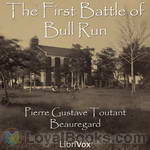 The First Battle of Bull Run
The First Battle of Bull Run
General Pierre Gustave Toutant Beauregard was one of the senior commanders of Southern forces during the Civil War. It was he who initiated the hostilities by opening fire on Ft. Sumter in Charleston harbor, in April, 1861. In July of that year, having taken command of the Confederate Army of the Potomac, he triumphed in the first serious clash of the war, at Manassas, Virginia. His army, aided by reinforcements from Johnston’s army in the Shenandoah Valley, routed a Federal army under General McDowell... | |
By: Gaius Suetonius Tranquillus (c75 - c160 AD) | |
|---|---|
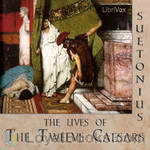 The Lives of the Twelve Caesars
The Lives of the Twelve Caesars
The Twelve Caesars is a set of twelve biographies of Julius Caesar and the first 11 emperors of the Roman Empire. The work was written in 121 during the reign of the emperor Hadrian, while Suetonius was Hadrian’s personal secretary. On the Life of the Caesars concentrates on the acts and personalities of the Julio-Claudians and their immediate successors. Together with Tacitus’ Annals, this work is a major source for the historical details in Robert Graves’ novels “I Claudius” and “Claudius the God”. | |
By: James Otis (1848-1912) | |
|---|---|
 Richard of Jamestown: A Story of the Virginia Colony
Richard of Jamestown: A Story of the Virginia Colony
Richard of Jamestown by James Otis was written for children with the purpose to show them the daily home life of the Virginia colonists. It is written from the viewpoint of a young boy named Richard Mutton. | |
By: Louis Hémon (1880-1913) | |
|---|---|
 Maria Chapdelaine
Maria Chapdelaine
Maria Chapdelaine is one of the most famous French Canadian novels. It is the love story of Maria Chapdelaine, daughter of a peasant family in the Saguenay-Lac-St-Jean region of Quebec, in the 1900s. It is often seen as an allegory of the French Canadian people, describing simple joys and great tragedies, the bonds of family, the importance of faith, and the strength of body and spirit needed to endure the harshness of life in Canada’s northern wilderness. | |
By: Thomas Carlyle | |
|---|---|
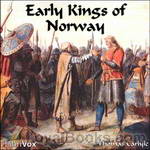 Early Kings of Norway
Early Kings of Norway
“The Icelanders, in their long winter, had a great habit of writing; and were, and still are, excellent in penmanship. It is to this fact, that any little history there is of the Norse Kings and their old tragedies, crimes and heroisms, is almost all due. The Icelanders, it seems, not only made beautiful letters on their paper or parchment, but were laudably observant and desirous of accuracy; and have left us such a collection of narratives (Sagas, literally “Says”) as, for quantity and quality, is unexampled among rude nations... | |
By: General Sir John Miller Adye (1819-1900) | |
|---|---|
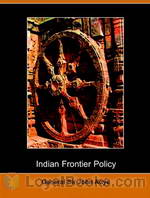 Indian Frontier Policy, an Historical Sketch
Indian Frontier Policy, an Historical Sketch
“The subject of our policy on the North-West frontier of India is one of great importance, as affecting the general welfare of our Eastern Empire, and is specially interesting at the present time, when military operations on a considerable scale are being conducted against a combination of the independent tribes along the frontier. It must be understood that the present condition of affairs is no mere sudden outbreak on the part of our turbulent neighbours. Its causes lie far deeper, and are the consequences of events in bygone years”. (From the author’s Preface, 1897). | |
By: Leander Stillwell (1843-1934) | |
|---|---|
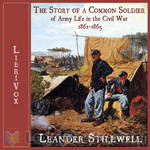 The Story of a Common Soldier of Army Life in the Civil War, 1861-1865
The Story of a Common Soldier of Army Life in the Civil War, 1861-1865
Leander Stillwell was an 18-year-old Illinois farm boy, living with his family in a log cabin, when the U.S. Civil War broke out. Stillwell felt a duty “to help save the Nation;” but, as with many other young men, his Patriotism was tinged with bravura: “the idea of staying at home and turning over senseless clods on the farm with the cannon thundering so close at hand . . . was simply intolerable.” Stillwell volunteered for the 61st Illinois Infantry in January 1861. His youthful enthusiasm for the soldier’s life was soon tempered at Shiloh, where he first “saw a gun fired in anger,” and “saw a man die a violent death... | |
By: Roald Amundsen (1872-1928) | |
|---|---|
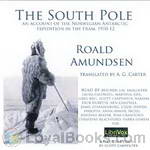 The South Pole; an account of the Norwegian Antarctic expedition in the Fram, 1910-12
The South Pole; an account of the Norwegian Antarctic expedition in the Fram, 1910-12
In contrast to Scott’s South Pole expedition, Amundsen’s expedition benefited from good equipment, appropriate clothing, and a fundamentally different primary task (Amundsen did no surveying on his route south and is known to have taken only two photographs) Amundsen had a better understanding of dogs and their handling, and he used of skis more effectively. He pioneered an entirely new route to the Pole and they returned. In Amundsen’s own words: “Victory awaits him who has everything in order — luck, people call it... | |
By: Thomas Wentworth Higginson | |
|---|---|
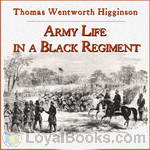 Army Life in a Black Regiment
Army Life in a Black Regiment
These pages record some of the adventures of the First South Carolina Volunteers, the first slave regiment mustered into the service of the United States during the late civil war. It was, indeed, the first colored regiment of any kind so mustered, except a portion of the troops raised by Major-General Butler at New Orleans. These scarcely belonged to the same class, however, being recruited from the free colored population of that city, a comparatively self-reliant and educated race. (From the text) | |
By: Booker T. Washington (1856-1915) | |
|---|---|
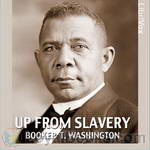 Up From Slavery
Up From Slavery
Up From Slavery is the 1901 autobiography of Booker T. Washington detailing his slow and steady rise from a slave child during the Civil War, to the difficulties and obstacles he overcame to get an education at the new Hampton University, to his work establishing vocational schools—most notably the Tuskegee Institute in Alabama—to help black people and other disadvantaged minorities learn useful, marketable skills and work to pull themselves, as a race, up by the bootstraps. He reflects on the generosity of both teachers and philanthropists who helped in educating blacks and native Americans... | |
By: John Burroughs (1837-1921) | |
|---|---|
 Birds and Bees, Sharp Eyes, and Other Papers
Birds and Bees, Sharp Eyes, and Other Papers
Probably no other American writer has a greater sympathy with, and a keener enjoyment of, country life in all its phases—farming, camping, fishing, walking—than has John Burroughs. His books are redolent of the soil, and have such "freshness and primal sweetness," that we need not be told that the pleasure he gets from his walks and excursions is by no means over when he steps inside his doors again. As he tells us on more than one occasion, he finds he can get much more out of his outdoor experiences by thinking them over, and writing them out afterwards... | |
By: Allan Fea (1860-1956) | |
|---|---|
 Secret Chambers and Hiding Places
Secret Chambers and Hiding Places
“Secret Chambers and Hiding Places” is a collection of concealments and their uses, almost all within England, although a very few passages and chambers in continental Europe are mentioned, Jacobite hidey holes in Scotland, while the final chapter of the book covers Bonnie Prince Charlie’s wanderings around Scotland, among caves and other hiding places. Most chapters are devoted to historical events; such as the the seventeenth century persecution of roman catholics (with many large houses having specially constructed “priests’ holes”), or various unpopular monarchs and their hiding places... | |
By: Erskine Childers (1870-1922) | |
|---|---|
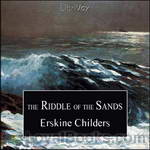 The Riddle of the Sands
The Riddle of the Sands
Containing many realistic details based on Childers’ own sailing trips along the German North Sea coast, the book is the retelling of a yachting expedition in the early 20th century combined with an adventurous spy story. It was one of the early invasion novels which predicted war with Germany and called for British preparedness. The plot involves the uncovering of secret German preparations for an invasion of the United Kingdom. It is often called the first modern spy novel, although others are as well, it was certainly very influential in the genre and for its time... | |
By: Eva March Tappan (1854-1930) | |
|---|---|
 When Knights Were Bold
When Knights Were Bold
This book is in no degree an attempt to relate the involved and intricate history of the Middle Ages. Its plan is, rather, to present pictures of the manner of life and habits of thought of the people who lived between the eighth and fifteenth centuries. Our writings and our everyday conversation are full of their phrases and of allusions to their ideas. Many of our thoughts and feelings and instincts, of our very follies and superstitions, have descended to us from them. To become better acquainted with them is to explain ourselves. | |
By: R. Talbot Kelly (1861-1934) | |
|---|---|
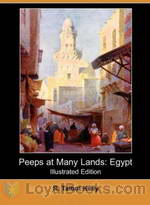 Peeps at Many Lands: Egypt
Peeps at Many Lands: Egypt
A short travelogue of Egypt, this book was written as part of an early 20th century series of travelogues on exotic destinations. | |
By: Benvenuto Cellini ((1500-1571)) | |
|---|---|
 The Autobiography of Benvenuto Cellini
The Autobiography of Benvenuto Cellini
Cellini’s autobiographical memoirs, which he began writing in Florence in 1558, give a detailed account of his singular career, as well as his loves, hatreds, passions, and delights, written in an energetic, direct, and racy style. They show a great self-regard and self-assertion, sometimes running into extravagances which are impossible to credit. He even writes in a complacent way of how he contemplated his murders before carrying them out. He writes of his time in Paris: Parts of his tale recount... | |
By: W. M. Flinders Petrie | |
|---|---|
 Egyptian Tales, translated from the Papyri, Series One
Egyptian Tales, translated from the Papyri, Series One
Brief, and in some cases incomplete, stories of magic from ancient Egypt. | |
By: Samuel Cheetham | |
|---|---|
 History of the Christian church
History of the Christian church
The intention of this work is to provide a sketch of the History of the Church in the first six centuries of its existence, resting throughout on original authorities, and also giving references to the principal modern works which have dealt specially with its several portions. It is hoped that it may be found to supply a convenient summary for those who can give but little time to the study, and also to serve as a guide for those who desire to make themselves acquainted with the principal documents from which the History is drawn. | |
By: Winston Churchill (1874-1965) | |
|---|---|
 The River War: An Account of the Reconquest of the Sudan
The River War: An Account of the Reconquest of the Sudan
When the self-proclaimed Mahdi (“Guided One”) gathered Islamic forces and kicked the Anglo-Egyptians out of the Sudan, he unleashed a backlash. With the image of the heroic General Charles Gordon dying at Khartoum, the British public was ready to support a war to reclaim the lost territories. And when the political time was right, a British-Egyptian-Sudanese expedition led by the redoubtable Herbert Kitchener set out to do just that.The river involved was the Nile. For millennia, its annual flood has made habitable a slender strip, though hundreds of miles of deserts, between its tributaries and its delta... | |
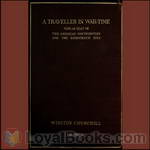 A Traveller in War-Time
A Traveller in War-Time
This is a collection of a series of journalistic articles written during his travels throughout WWI era Europe that Churchill — the American author, not the famed British statesman — published in 1917; the book version came out in 1918. The writing is sharp, straightforward, and rarely sentimental, with loads of local color and occasional humor. | |
By: Noah Davis (b. 1804) | |
|---|---|
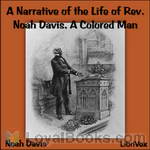 A Narrative of the Life of Rev. Noah Davis, A Colored Man
A Narrative of the Life of Rev. Noah Davis, A Colored Man
The object of the writer, in preparing this account of himself, is to RAISE SUFFICIENT MEANS TO FREE HIS LAST TWO CHILDREN FROM SLAVERY. Having already, within twelve years past, purchased himself, his wife, and five of his children, at a cost, altogether, of over four thousand dollars, he now earnestly desires a humane and Christian public to AID HIM IN THE SALE OF THIS BOOK, for the purpose of finishing the task in which he has so long and anxiously labored. God has blessed him in an extraordinary... | |
By: Marcus Tullius Cicero | |
|---|---|
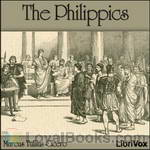 The Philippics
The Philippics
A philippic is a fiery, damning speech delivered to condemn a particular political actor. The term originates with Demosthenes, who delivered an attack on Philip II of Macedon in the 4th century BCE.Cicero consciously modeled his own attacks on Mark Antony, in 44 BC and 43 BC, on Demosthenes’s speeches, and if the correspondence between M. Brutus and Cicero are genuine [ad Brut. ii 3.4, ii 4.2], at least the fifth and seventh speeches were referred to as the Philippics in Cicero’s time. They were also called the Antonian Orations by Aulus Gellius... | |
By: Giles Lytton Strachey (1880-1932) | |
|---|---|
 Eminent Victorians
Eminent Victorians
On Modern Library's list of 100 Best Non-Fiction books, "Eminent Victorians" marked an epoch in the art of biography; it also helped to crack the old myths of high Victorianism and to usher in a new spirit by which chauvinism, hypocrisy and the stiff upper lip were debunked. In it, Strachey cleverly exposes the self-seeking ambitions of Cardinal Manning and the manipulative, neurotic Florence Nightingale; and in his essays on Dr Arnold and General Gordon, his quarries are not only his subjects but also the public-school system and the whole structure of nineteenth-century liberal values. | |
By: Irwin Leslie Gordon (1888-1954) | |
|---|---|
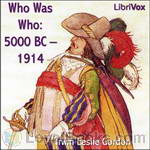 Who Was Who: 5000 BC – 1914
Who Was Who: 5000 BC – 1914
A short, humorous biography of famous people from 5000 BC to 1914. — S. McGaughey From the Introduction, “The editor begs leave to inform the public that only persons who can produce proper evidence of their demise will be admitted to Who Was Who. Press Agent notices or complimentary comments are absolutely excluded, and those offering to pay for the insertion of names will be prosecuted. As persons become eligible they will be included without solicitation, while the pages will be expurgated of others should good luck warrant.” | |
By: Marcel Dupont (1879-1964) | |
|---|---|
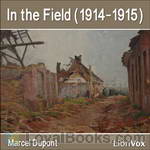 In the Field (1914-1915)
In the Field (1914-1915)
I have merely tried to make a written record of some of the hours I have lived through during the course of this war. A modest Lieutenant of Chasseurs, I cannot claim to form any opinion as to the operations which have been carried out for the last nine months on an immense front. I only speak of things I have seen with my own eyes, in the little corner of the battlefield occupied by my regiment. | |
By: Samuel Johnson | |
|---|---|
 Plan and Preface to a Dictionary of English
Plan and Preface to a Dictionary of English
The published dictionary was a huge book: with pages nearly 1½ feet tall and 20 inches wide, it contained 42,773 words; it also sold for the huge price of £4/10s. ($400?). It would be years before “Johnson’s Dictionary”, as it came to be known, would ever turn a profit; authors’ royalities being unknown at that time, Johnson, once his contract to deliver the book was fulfilled, received no further monies connected to the book. Johnson, once again a freelance writer, albeit now a famous one, faced a grim hand-to-mouth existence; however, in July 1762 the twenty-four year old King George III granted Johnson an annual pension of £300... | |
By: Christopher Marlowe (1564-1593) | |
|---|---|
 Edward II
Edward II
Christopher Marlowe's Elizabethan tragedy focuses on the downfall of King Edward II, whose love for his favorite courtier, Piers Gaveston, leads to rebellion. | |
By: Winston S. Churchill | |
|---|---|
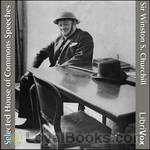 Selected House of Commons Speeches
Selected House of Commons Speeches
Sir Winston Leonard Spencer Churchill (1874 – 1965) was a British politician known chiefly for his leadership of the United Kingdom during World War II. He served as Prime Minister of the United Kingdom from 1940 to 1945 and again from 1951 to 1955. A noted statesman and orator, Churchill was also an officer in the British Army, a historical writer, and an artist. | |
By: Lawrence Beesley (1877-1967) | |
|---|---|
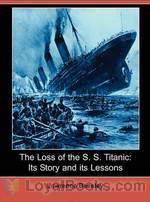 The Loss of the S. S. Titanic
The Loss of the S. S. Titanic
This is a 1st hand account written by a survivor of the Titanic about that fateful night and the events leading up to it as well as the events that followed its sinking. | |
By: Joseph Lewis French (1858-1936) | |
|---|---|
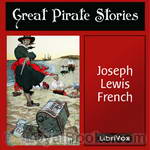 Great Pirate Stories
Great Pirate Stories
Piracy embodies the romance of the sea at its highest expression. It is a sad but inevitable commentary on our civilization, that, so far as the sea is concerned, it has developed from its infancy down to a century or so ago, under one phase or another of piracy. If men were savages on land they were doubly so at sea, and all the years of maritime adventure–years that added to the map of the world till there was little left to discover–could not wholly eradicate the piratical germ. | |
By: Einhard (c.775-840) | |
|---|---|
 The Life of Charlemagne
The Life of Charlemagne
Einhard was employed by Charlemagne as a court historian. At the request of Charlemagne’s son and successor Louis the Pious, he wrote a biography of Charlemagne, the Vita Karoli Magni or Life of Charlemagne (c. 817–830), which provides much direct information about Charlemagne’s life and character. In composing this he made full use of the Frankish Royal annals. Einhard’s literary model was the classical work of the Roman historian Suetonius, the Lives of the Caesars. (adapted from Wikipedia) | |
By: Mary A. Hamilton | |
|---|---|
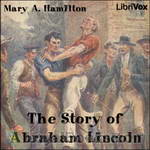 The Story of Abraham Lincoln
The Story of Abraham Lincoln
In this biography for young adults, Mary A. Hamilton gives a British person’s perspective on the 16th President of the United States. A glowing tribute to “Honest Abe”, the author traces Lincoln’s ancestral roots and recounts his birth in Kentucky, his youth in Indiana, his adult life in Illinois and his years in the White House. She also provides a good background on the causes and course of the American Civil War. Hamilton is not always historically precise. For example, she erroneously names Jefferson Davis as the Southern Democratic candidate for president running against Lincoln and Douglas in 1860 rather than John C... | |
By: Marie Belloc Lowndes (1868-1947) | |
|---|---|
 The Lodger
The Lodger
The Lodger by Marie Belloc Lowndes was inspired by the Jack the Ripper murders. An older couple, the Buntings, are forced to take in lodgers to make ends meet. They are on the verge of starvation when a mysterious man, Mr. Sleuth, appears at their door and asks for lodging, paying in advance. However, when the murders of young women in London attributed to a man known only as “The Avenger” continue, the Buntings, particularly Mrs. Bunting, grow fearful that their lodger may be the murderer. | |
By: H. Rider Haggard (1856-1925) | |
|---|---|
 The Brethren
The Brethren
Set in the days of the Crusaders, this books tells of a young maiden named Rosamund, and her twin cousins. Godwin is the grey eyed thoughtful man, and Wulf is the blue eyed warrior. They are both knights of England and they are both in love with their fair cousin. But the riddle of the story is which does Rosamund love?The adventure begins when Rosamund is taken from England and carried to the East. The plot thickens as the two young knights follow her in hopes of rescuing her from the Muslim leader, Saladin... | |
By: J. O. Choules | |
|---|---|
 Young Americans Abroad – Vacation in Europe
Young Americans Abroad – Vacation in Europe
It’s 1851 and the Crystal Palace Exhibition is on in England. English American the Reverend Dr. Choules leaves Newport, Rhode Island with three teenaged students – James Robinson, George Vanderbuilt, and Weld French, who are forced to leave the fourth member of their blue-blooded quartet at home – and all four travelers promise to write to “Dear Charley”, Charles Duston, of later fame. The boys meet the Duke of Wellington, travel down the Rhine, and meet many friends along the way. While the letters are filled with some prejudice against the Catholic religion, they are a product of their time – a sometimes ignorant, but often dazzling, period of our history. | |
By: John George Nicolay | |
|---|---|
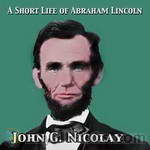 A Short Life of Abraham Lincoln
A Short Life of Abraham Lincoln
John G. Nicolay was Abraham Lincoln’s private White House secretary. With assistant secretary, John Hay, he wrote the two volume definitive biography of Lincoln, “Abraham Lincoln, a Biography.” Although this is a condensation by Nicolay of that biography, it is still a sizable work and a fairly thorough treatment of the life of the 16th president of the United States. | |
By: Charles Mackay (1814-1889) | |
|---|---|
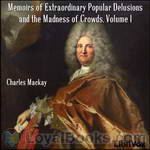 Memoirs of Extraordinary Popular Delusions and the Madness of Crowds
Memoirs of Extraordinary Popular Delusions and the Madness of Crowds
The book chronicles and vilifies its targets in three parts: “National Delusions”, “Peculiar Follies”, and “Philosophical Delusions”.The subjects of Mackay’s debunking include alchemy, beards (influence of politics and religion on), witch-hunts, crusades and duels. Present day writers on economics, such as Andrew Tobias, laud the three chapters on economic bubbles. | |
By: Frances Calderón de la Barca (1804-1882) | |
|---|---|
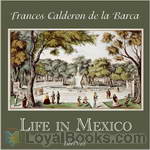 Life in Mexico
Life in Mexico
FRANCES CALDERON DE LA BARCA, born in Edinburgh, 1804, the daughter of William Inglis. After her father’s death she settled in America, where she married the Spanish diplomat, Don Angel Calderon de la Barca. She accompanied him on his various appointments to Mexico, Washington, and finally to Madrid, where she was created Marquesa de Calderon de la Barca by Alfonso XII and died in 1882. The present work is the result of observations made during a two years’ residence in Mexico, by a lady, whose position there made her intimately acquainted with its society, and opened to her the best sources of information in regard to whatever could interest an enlightened foreigner... | |
By: John R. Hale | |
|---|---|
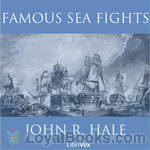 Famous Sea Fights
Famous Sea Fights
I propose to tell in non-technical and popular language the story of some of the most remarkable episodes in the history of sea power. I shall begin with the first sea-fight of which we have a detailed history—the Battle of Salamis (B.C. 480), the victory by which Themistocles the Athenian proved the soundness of his maxim that “he who commands the sea commands all.” I shall end with the last and greatest of naval engagements, the Battle of Tsu-shima, an event that reversed the long experience of victory won by West over East, which began with Salamis more than two thousand years ago... | |
By: Henry Cabot Lodge (1850-1924) | |
|---|---|
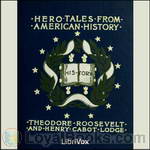 Hero Tales from American History
Hero Tales from American History
Its purpose … is to tell in simple fashion the story of some Americans who showed that they knew how to live and how to die; who proved their truth by their endeavor; and who joined to the stern and manly qualities which are essential to the well-being of a masterful race the virtues of gentleness, of patriotism, and of lofty adherence to an ideal. It is a good thing for all Americans … to remember the men who have given their lives in war and peace to the service of their fellow-countrymen, and to keep in mind the feats of daring and personal prowess done in time past by some of the many champions of the nation in the various crises of her history. | |
By: Isabella L. Bird (1831-1904) | |
|---|---|
 A Lady's Life in the Rocky Mountains
A Lady's Life in the Rocky Mountains
Isabella Bird began travelling while in her early twenties to help alleviate illness that had plagued her since childhood. She was a single woman in her early forties when she made her treck through the Rocky Mountains. A Lady’s Life in the Rocky Mountains details this fascinating account of her travels through a series of letters written to her sister, Henrietta. These letters are filled with beautiful, vivid descriptions of the scenery, the people she encountered, the way of life, and a mountain man named Jim Nugent, that was as rough as they come, but a complete gentleman with Ms... | |
By: Sir Henry Morton Stanley (1841-1904) | |
|---|---|
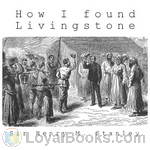 How I Found Livingstone
How I Found Livingstone
Sir Henry Morton Stanley is famously quoted for saying “Dr Livingstone, i Presume?”. Born in Wales, he migrated over to the United States at the age of 18, and eventually became an overseas correspondent for the New York Herald. In 1869 Stanley was told by James Gordon Bennett Jr to find Livingstone, a scottish missionary and explorer, who was lost in central Africa. When Stanley commented on the cost Bennett’s reply was: “Well, I will tell you what you will do. Draw a thousand pounds now; and when you have gone through that, draw another thousand, and when that is spent, draw another thousand, and when you have finished that, draw another thousand, and so on; but, FIND LIVINGSTONE. | |
By: St. George Stock (b. 1850) | |
|---|---|
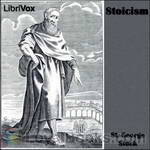 Stoicism
Stoicism
This short book is part of the Philosophies Ancient and Modern series, which attempts to make Western philosophy more accessible to the general public. In this volume, George Stock provides a concise primer on Stoicism, the ancient philosophy that maintained that the universe is governed entirely by fate, and that humans can achieve happiness only by cultivating a calm acceptance of the vicissitudes of life. Among the Stoics of the Greek and Roman world were its founder, Zeno, the former slave Epictetus, and the Roman emperor Marcus Aurelius... | |
By: Oliver Optic | |
|---|---|
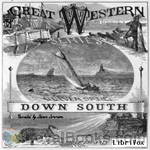 Down South or Yacht Adventure in Florida
Down South or Yacht Adventure in Florida
"Down South" is the fifth and last volume but one of the "Great Western Series." The action of the story is confined entirely to Florida; and this fact may seem to belie the title of the Series. But the young yachtsman still maintains his hold upon the scenes of his earlier life in Michigan, and his letters come regularly from that State. If he were old enough to vote, he could do so only in Michigan; and therefore he has not lost his right to claim a residence there during his temporary sojourn in the South... | |
By: Alexandre Exquemelin (c. 1645-1707) | |
|---|---|
 The Pirates of Panama
The Pirates of Panama
This volume was originally written in Dutch by John Esquemeling, and first published in Amsterdam in 1678 under the title of De Americaeneche Zee Roovers. It immediately became very popular and this first hand history of the Buccaneers of America was soon translated into the principal European languages. The first English edition was printed in 1684. Esquemeling served the Buccaneers in the capacity of barber-surgeon, and was present at all their exploits. Little did he suspect that his first hand observations would some day be cherished as the only authentic and true history of the Buccaneers and Marooners of the Spanish Main... | |
By: Gilbert White (1720-1793) | |
|---|---|
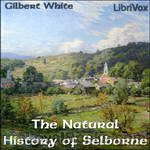 The Natural History of Selborne
The Natural History of Selborne
The Reverend Gilbert White was the curate of the village of Selborne, a village in Hampshire, from 1784 to his death in 1793, living most of his life in the village. The book is in the form of a collection of letters to two friends, discussing the natural history of the areas that he knew, and natural history in general. White’s intense curiosity and his love for the world about him flow through his simple, straightforward style, and a gentle sense of humour colours many of his anecdotes. | |
By: Edward R. Shaw (1855-1903) | |
|---|---|
 Discoverers and Explorers
Discoverers and Explorers
Tales of the brave and daring explorers that ventured into the unknown “Sea of Darkness” where it was thought monsters and angry gods lived. They dared to sail near the equator which was thought to have such intense heat that it would boil the ocean water. It was also commonly thought at the time that the world was flat, and the ships would fall off the face of the earth. These men overcame these fears to explore and discover new lands. | |
By: William Beatty, M.D. (1773-1842) | |
|---|---|
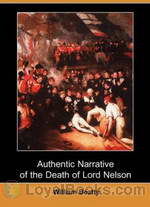 The Death of Lord Nelson
The Death of Lord Nelson
“The Surgeon of the late illustrious Lord NELSON feels himself called upon, from the responsible situation which he held on the eventful day of the 21st of October 1805, to lay before the British Nation the following Narrative. It contains an account of the most interesting incidents which occurred on board the Victory. (Lord NELSON’s flag-ship) from the time of her sailing from England, in the month of September, till the day of battle inclusively”. – William Beatty | |
By: Owen Wister (1860-1938) | |
|---|---|
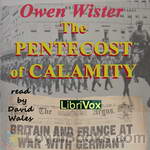 The Pentecost of Calamity
The Pentecost of Calamity
Nonfiction. Appalled by the savagery of World War I, Owen Wister in 1915 published an attempt to move the United States out of neutrality into joining the Allies against Germany. His aim was the quicker defeat of that nation. (Wister: “the new Trinity of German worship – the Super-man, the Super-race, and the Super-state.”) He was but one of many literary personages who joined in this effort. A moving quote: “Perhaps nothing save calamity will teach us what Europe is thankful to have learned again – that some things are worse than war, and that you can pay too high a price for peace; but that you cannot pay too high for the finding and keeping of your own soul.” | |
 Lady Baltimore
Lady Baltimore
Augustus visits King's Port, South Carolina, at the request of his Aunt Carola, and at her expense. She wants him to research geneaologies and records to find proof that he is descended from royalty so that he can join her exclusive club, the Colonial Society. While there, he becomes involved in a love affair between John Mayrant and Eliza La Heu. | |
By: Arthur William Knapp (1880-1939) | |
|---|---|
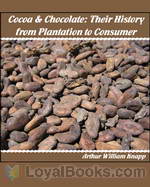 Cocoa and Chocolate: Their History from Plantation to Consumer
Cocoa and Chocolate: Their History from Plantation to Consumer
As that heavenly bit of chocolate melts in our mouths, we give little thought as to where it came from, the arduous work that went in to its creation, and the complex process of its maturation from a bean to the delicacy we all enjoy. This “little book” details everything you have ever wanted to know (and some things you never knew you wanted to know) about cocoa and chocolate from how the trees are planted and sustained to which countries produce the most cacao beans. Do cacao beans from various... | |
By: William Joseph Long (1867-1952) | |
|---|---|
 Secrets of the Woods
Secrets of the Woods
The unique merit of this nature student rests in his fascinating style of writing, which invariably interests young and old; for without this element his pioneer work in the realm of nature would now be familiar only to scientists, introducing people everywhere into the wonderland of nature hitherto entirely closed to all. This is another chapter in the shy, wild life of the fields and woods. Little Toohkees, the wood mouse that dies of fright in the author’s hand; the mother otter, Keeonekh,... | |
By: Ruth Edna Kelley | |
|---|---|
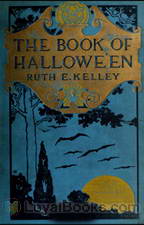 The Book of Hallowe'en
The Book of Hallowe'en
This book is intended to give the reader an account of the origin and history of Hallowe’en, how it absorbed some customs belonging to other days in the year,—such as May Day, Midsummer, and Christmas. The context is illustrated by selections from ancient and modern poetry and prose, related to Hallowe’en ideas. | |
By: George Berkeley (1685-1753) | |
|---|---|
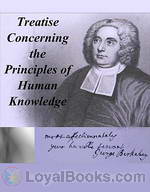 A Treatise Concerning the Principles of Human Knowledge
A Treatise Concerning the Principles of Human Knowledge
A Treatise Concerning the Principles of Human Knowledge, Part 1 (Commonly called “Treatise” when referring to Berkeley’s works) is a 1710 work by the Irish Empiricist philosopher George Berkeley. It largely seeks to refute the claims made by his contemporary John Locke about the nature of human perception. Both Locke and Berkeley agreed that there was an outside world, and it was this world which caused the ideas one has within one’s mind. Berkeley sought to prove that the outside world was also composed solely of ideas, suggesting that “Ideas can only resemble Ideas”... | |
By: Richard Harding Davis (1864-1916) | |
|---|---|
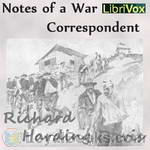 Notes of a War Correspondent
Notes of a War Correspondent
Experiences and observations of the journalist in the Cuban-Spanish War, the Greek-Turkish War, the Spanish-American War, the South African War, and the Japanese-Russian War, accompanied by "A War Correspondent’s Kit." | |
 Men of Zanzibar
Men of Zanzibar
This is the story of Hemingway, who, after a hunting trip in Uganda, settles in Zanzibar for a while to live among the English-speaking expatriate community on that island. While keeping his true identity well to himself, he falls in love with Ms. Polly Adair, the American Belle of the little society. But when he asks her to marry him, it seems that Ms. Adair has a secret... | |
By: www.mikevendetti.com | |
|---|---|
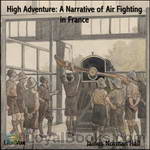 High Adventure A Narrative of Air Fighting in France
High Adventure A Narrative of Air Fighting in France
High Adventure A Narrative of Air Fighting in France by James Norman Hall; you will find this book although an exciting narrative has an unpolished feel because it was published in June of 1918 while Mr. Hall was a captive in a German POW camp. When he was captured behind enemy lines, the book was still a work in progress. The Armistice would not be reached until November of that year. Although he does not mention it in this book, Mr. Hall had already served the better part of 15 months with the British Expeditionary Forces, surviving the battle of Loos in Sept – Oct 1915, and upon which his excellent work “Kitchener’s” Mob is Based... | |
By: Fridtjof Nansen (1861-1930) | |
|---|---|
 Farthest North
Farthest North
Being the Record of a Voyage of Exploration of the Ship "Fram", 1893-96 and of a Fifteen Months' Sleigh Journey by Dr. Nansen and Lieut. Johansen / by Fridtjof Nansen; with an Appendix by Otto Sverdrup | |
By: George Alfred Henty (1832-1902) | |
|---|---|
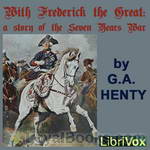 With Frederick The Great: A Story of the Seven Years' War
With Frederick The Great: A Story of the Seven Years' War
Among the great wars of history there are few, if any, instances of so long and successfully sustained a struggle, against enormous odds, as that of the Seven Years' War, maintained by Prussia--then a small and comparatively insignificant kingdom--against Russia, Austria, and France simultaneously, who were aided also by the forces of most of the minor principalities of Germany. The population of Prussia was not more than five millions, while that of the Allies considerably exceeded a hundred millions... | |
 With Clive in India
With Clive in India
With Clive in India gives a vivid picture of the wonderful events of the ten years, which at their commencement saw Madras in the hands of the French--Calcutta at the mercy of the Nabob of Bengal--and English influence apparently at the point of extinction in India--and which ended in the final triumph of the English, both in Bengal and Madras. There were yet great battles to be fought, great efforts to be made, before the vast Empire of India fell altogether into British hands; but these were but the sequel of the events described. | |